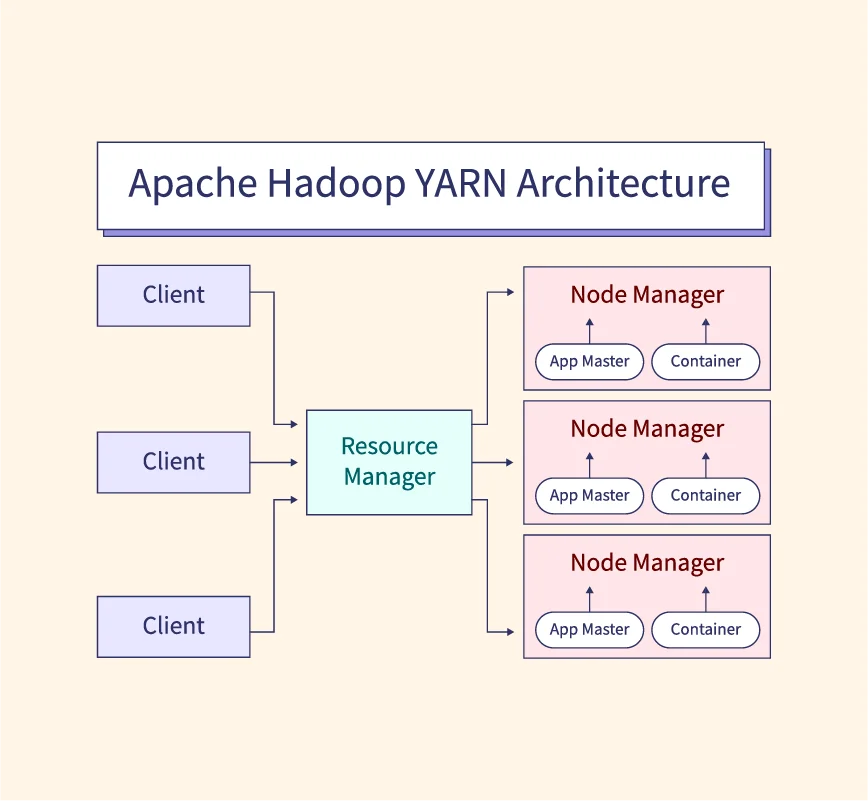Artificial Intelligence (AI) is transforming industries across the globe, and India is emerging as a hub for AI talent. The demand for AI engineers is on the rise, driven by rapid technological advancements and the adoption of AI across sectors like healthcare, finance, retail, and automotive.
Understanding salary trends is essential for aspiring AI professionals to make informed career choices. This article explores the salary landscape for AI engineers in India, analyzing key factors like experience, location, industry, and skills that influence compensation. With projections for 2025, we aim to provide insights to help professionals navigate their AI careers effectively.
What is an AI Engineer?
An AI engineer is responsible for designing, developing, and deploying artificial intelligence models that enable machines to perform tasks typically requiring human intelligence, such as natural language processing (NLP), computer vision, and predictive analytics. These professionals work with large datasets, implement machine learning algorithms, and ensure seamless integration of AI systems within business operations.
Key responsibilities include building machine learning pipelines, fine-tuning deep learning models, and collaborating with data scientists and software developers. They also work on optimizing algorithms for better performance and scalability.
Common job titles in the AI domain include Machine Learning Engineer, Data Scientist, NLP Engineer, and AI Consultant. In senior roles, positions such as AI Architect or Chief AI Officer focus on strategy and leadership. AI engineers play a crucial role in both research and application, bridging the gap between innovative technologies and real-world business solutions.
AI Engineering Landscape in India
India’s AI ecosystem has seen exponential growth in recent years, driven by increasing adoption across multiple sectors. Healthcare is leveraging AI for medical diagnostics and drug discovery, while finance relies on AI for fraud detection and personalized banking. Retail and e-commerce companies use AI to enhance customer experiences with chatbots and recommendation systems. Automotive industries are integrating AI for autonomous vehicles and predictive maintenance.
Government initiatives, such as the National AI Strategy and Digital India program, play a significant role in fostering AI innovation. The government has also launched AI-focused research centers and partnered with academia to boost AI literacy. Additionally, India is positioning itself as a global AI hub through investments in AI startups and public-private partnerships.
Tech giants like Google, Microsoft, IBM, and TCS have established AI research labs and innovation centers in India, further advancing AI technologies. These companies offer opportunities for AI professionals to work on cutting-edge projects in machine learning, natural language processing, and computer vision. With the combined efforts of the government, academia, and industry players, the demand for skilled AI engineers continues to grow, making India a thriving landscape for AI careers.
Average Salary of an AI Engineer in India
The national average salary for AI engineers in India ranges between ₹10 LPA (Lakhs Per Annum) and ₹15 LPA, reflecting the increasing demand for AI expertise across industries. AI professionals are among the highest-paid in the tech sector, thanks to the specialized knowledge and skills required to develop advanced models and deploy AI systems effectively.
Salary levels are influenced by several factors, including industry and location. AI engineers working in leading industries such as finance, healthcare, and e-commerce often earn salaries at the upper end of the spectrum. Additionally, tech hubs like Bangalore, Pune, and Hyderabad tend to offer higher compensation due to increased demand and cost of living considerations.
The rise of AI-powered automation and machine learning solutions has further increased the need for skilled engineers, driving up salaries. AI engineers with niche skills, such as natural language processing (NLP) or computer vision, can command even higher pay.
Salary Breakdown by Key Factors
This section analyzes how various factors—experience, location, industry, and company—impact the salary of AI engineers in India.
1. Salary Based on Experience
AI engineers’ salaries grow substantially with experience. At different career stages, roles, responsibilities, and compensation vary significantly.
- Entry-Level (0-2 years):
Entry-level AI engineers earn ₹6-8 LPA on average. They assist in building machine learning models, perform data preprocessing, and work under senior professionals on AI projects. - Mid-Level (3-7 years):
Mid-level professionals can expect salaries between ₹15-25 LPA. They manage end-to-end AI pipelines, lead small projects, and develop advanced models. This stage often involves transitioning into leadership roles, such as AI team leads. - Senior-Level (8+ years):
Senior AI engineers, including AI Architects and AI Managers, earn upwards of ₹40-50 LPA. Their focus shifts to strategic planning, R&D initiatives, and mentoring teams. Some transition into consulting roles or executive positions like Chief AI Officer (CAIO).
The career trajectory in AI is steep, with rapid growth opportunities as engineers gain experience in advanced AI techniques and project management.
2. Salary by Location
AI engineer salaries vary widely across India’s major tech hubs, reflecting regional demand and cost of living differences.
- Bangalore: Known as India’s Silicon Valley, Bangalore offers the highest salaries, with average compensation reaching ₹15-18 LPA due to the concentration of AI startups and tech giants.
- Hyderabad: AI professionals earn ₹12-15 LPA, driven by the presence of multinational corporations like Microsoft and Amazon.
- Mumbai: AI engineers earn around ₹10-14 LPA. The city’s financial sector offers roles in algorithmic trading and financial AI systems.
- Delhi NCR: Salaries range from ₹10-13 LPA, with a focus on e-commerce, logistics, and public sector projects.
- Chennai and Pune: These cities offer competitive salaries (₹8-12 LPA) due to the presence of R&D centers and software companies.
Regional differences reflect living costs, the concentration of AI talent, and industry focus in each city.
3. Salary by Industry
AI engineers’ salaries also differ based on the industry they work in, with certain sectors offering higher pay due to specialized requirements.
- Finance: AI is transforming fraud detection, credit scoring, and algorithmic trading. Salaries in this sector can reach ₹20-30 LPA, especially in senior roles.
- Healthcare: AI professionals involved in medical diagnostics and drug discovery earn between ₹15-20 LPA. Specialized roles in biotech firms offer even higher compensation.
- Retail and E-commerce: AI engineers working on recommendation systems and customer segmentation earn around ₹12-18 LPA.
- Automotive: The development of autonomous vehicles and predictive maintenance systems drives salaries in this sector to ₹15-25 LPA.
The sector-specific demand for AI solutions influences salary variations, with finance and healthcare leading the way.
4. Salary by Company
AI engineers’ salaries also vary significantly based on the company they work for. Global tech companies, consulting firms, and Indian IT giants offer different compensation packages.
- Google India, Microsoft, and Amazon: These tech giants offer some of the highest salaries, with AI engineers earning ₹30-50 LPA. In addition to high pay, they provide stock options and performance bonuses.
- TCS, Infosys, and Wipro: AI engineers at Indian IT firms typically earn between ₹10-15 LPA. These companies focus on AI consulting and enterprise solutions.
- Startups and AI-Focused Firms: Startups may offer salaries in the range of ₹12-20 LPA, with equity options. AI professionals in startups often work on cutting-edge technologies but may face greater risks.
- Consulting Firms (Deloitte, PwC): AI engineers working in consulting earn ₹18-30 LPA, depending on project complexity. These roles involve working with multiple clients across industries.
Choosing the right company can impact both salary and career growth opportunities, with multinational firms and startups offering diverse benefits.
Skills Impacting AI Engineer Salary
The salary of an AI engineer is significantly influenced by a combination of technical and non-technical skills. Mastering the right skill set not only increases earning potential but also improves career growth prospects.
Technical Skills
AI engineers are expected to have expertise in key areas, including:
- Machine Learning (ML): Proficiency in supervised, unsupervised, and reinforcement learning techniques.
- Deep Learning: Knowledge of neural networks, including frameworks like TensorFlow and PyTorch, is highly valuable.
- Natural Language Processing (NLP): Skills in NLP are essential for building language models and chatbots.
- Programming Languages: Proficiency in Python, Java, or R is essential for implementing AI solutions.
- Data Handling: Expertise in working with large datasets, using SQL and NoSQL databases.
Non-Technical Skills
In addition to technical expertise, companies value soft skills that enhance collaboration and problem-solving. Key non-technical skills include:
- Problem-Solving: AI engineers must tackle complex challenges creatively.
- Teamwork and Communication: Effective collaboration with data scientists, product managers, and business stakeholders is crucial.
- Adaptability: As the field evolves rapidly, AI engineers need to stay updated and learn new technologies.
Possessing a well-rounded combination of technical proficiency and interpersonal skills makes AI engineers more attractive to employers, leading to higher salaries and better career opportunities.
Top Career Growth Opportunities in AI Engineering
AI engineering offers numerous opportunities for career advancement through specializations, leadership roles, research, and consulting. Professionals can choose to specialize in areas like computer vision, natural language processing (NLP), reinforcement learning, or robotics, each with growing demand across industries.
Progression to leadership roles, such as AI Architect, AI Project Manager, or Chief AI Officer (CAIO), provides avenues for those interested in driving AI strategy and leading teams. Additionally, experienced AI engineers can transition into R&D roles within academia or industry, working on cutting-edge innovations.
For those inclined towards consulting, AI professionals can offer expert advisory services to companies seeking to adopt AI technologies, benefiting from both high pay and diverse experiences across industries.
Tips for Progressing in AI Careers
- Continuous Learning: Stay updated with new frameworks, tools, and techniques.
- Build a Portfolio: Showcase AI projects, Kaggle competitions, or open-source contributions.
- Develop Leadership Skills: Take initiative in managing projects and mentoring junior engineers.
Future of AI Engineering in India
The demand for AI engineers in India is expected to grow rapidly as industries adopt AI-driven solutions across sectors like healthcare, finance, retail, and manufacturing. Emerging technologies such as edge computing, autonomous systems, and quantum AI will further fuel this demand.
However, challenges such as talent shortages, rapid technological changes, and the need for continuous upskilling pose obstacles for professionals. AI engineers will need to master both technical advancements and ethics-related challenges to thrive in the future. With government support and increasing corporate investments, AI engineering will remain one of the most promising career paths in India.
Conclusion
AI engineering offers lucrative career prospects with competitive salaries across various industries. Understanding the factors that influence salaries—like experience, skills, and industry trends—can help professionals make informed career decisions. As AI adoption accelerates, engineers who stay updated with advancements will enjoy long-term career growth and financial rewards.
References:


